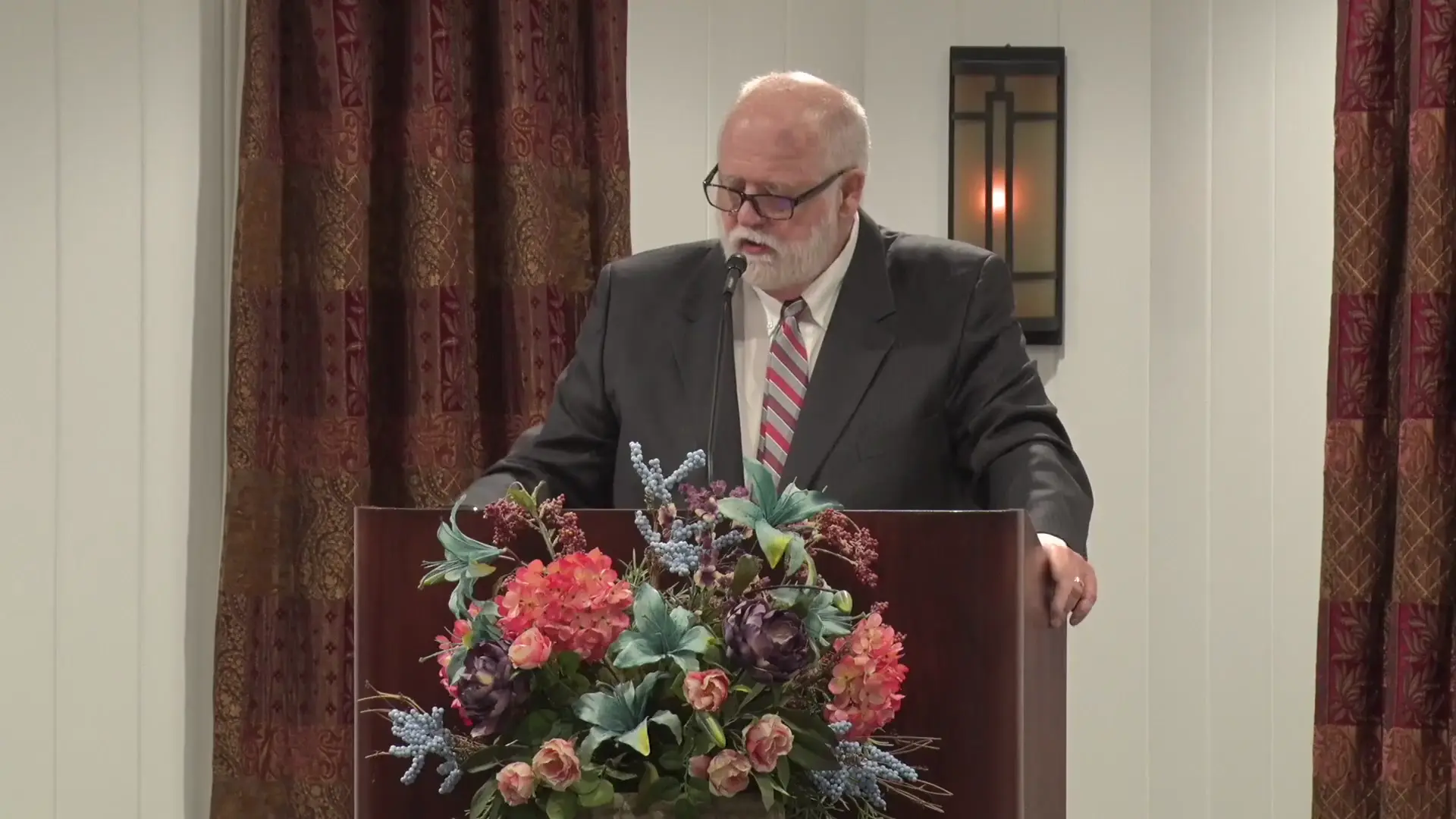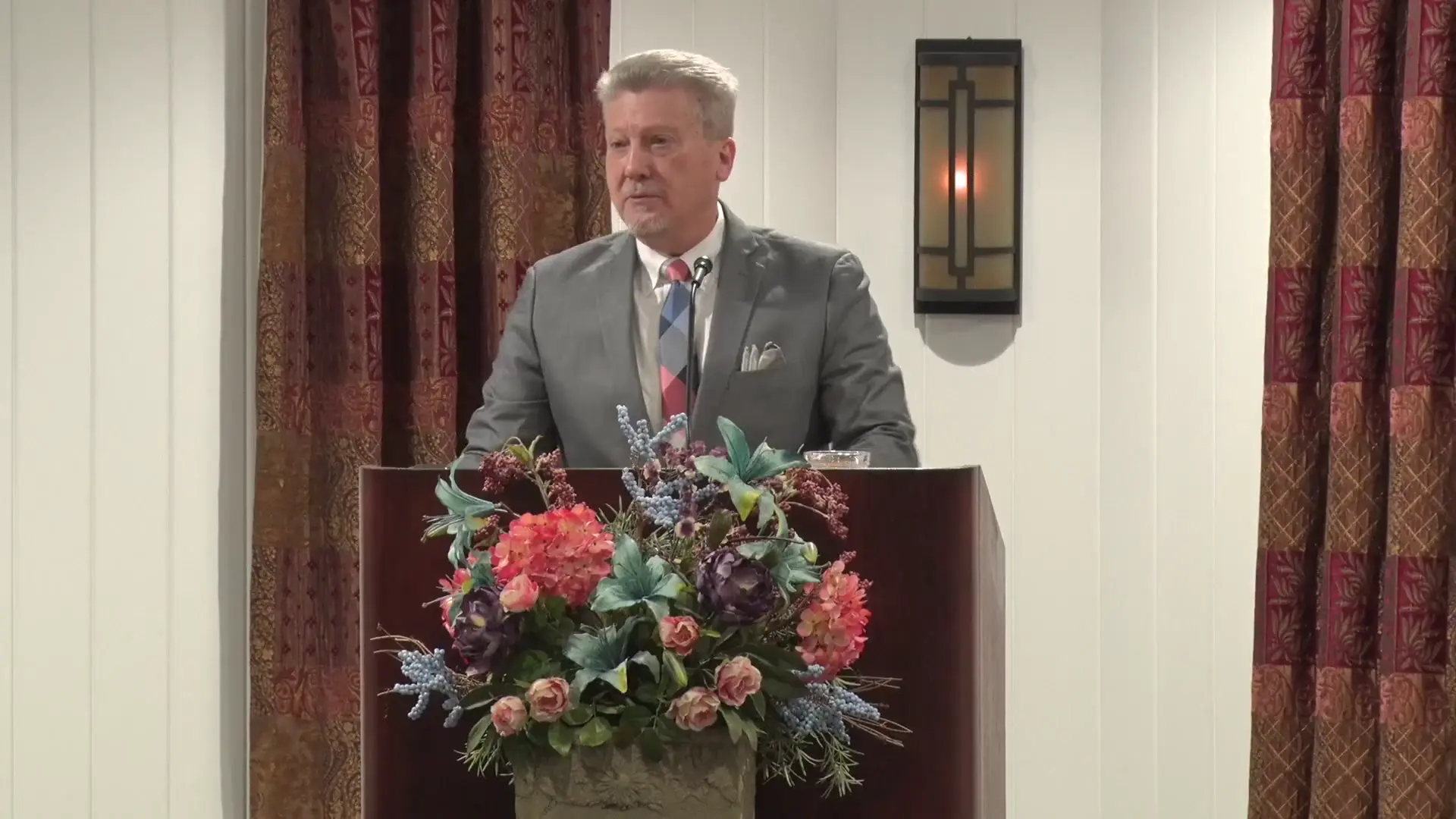Filter by Categories

Holy Ground
Sermon by Ted E. BowlingThe concept of holy ground emerges as a profound demonstration of God's presence and sanctity. In the encounter with Moses at the burning bush, God declared the surrounding area as holy ground, necessitating reverence by instructing Moses to remove his sandals. This ground, indistinguishable from any other to the untrained eye, was transformed into a sacred space solely by God's presence, highlighting that wherever He is, holiness resides. The same reverence was required of Joshua when he stood in God's presence, again commanded to remove his shoes, affirming the recurring significance of holy ground as a place set apart by God's essence. Similarly, within the Tabernacle, the priests entered the Holy Place and the Holy of Holies barefoot, showing humility and respect as they stepped onto ground made sacred by God's presence. Their careful preparation, including washing their feet and hands, underscored the seriousness of approaching that which is holy. The Sabbath day, too, is designated as holy ground in time, set apart and consecrated by God. Just as physical locations were made sacred by His presence, the Sabbath is a special time, distinct from other days, demanding honor and reverence through worship and rest. God's command to treat holy ground with respect extends to the Sabbath, urging a mindful approach to avoid trampling on what He has sanctified. The Sabbath serves as a sign of the covenant between God and His people, a test of obedience and a means to deepen the relationship with the Creator. It calls for a deliberate shift from daily routines, focusing instead on spiritual growth and communal worship, ensuring that this holy time is not treated as common but as a delight and a sacred assembly.

Polluted Sabbath?
Sermon by Bill OnisickIn the journey of spiritual cleansing, the concept of holy ground emerges as a profound reminder of purity and sanctification. In Exodus 3, as Moses approaches the burning bush, the Lord declares the surrounding ground to be holy, qadosh, not because of any visible difference but because of His divine presence. God's presence sanctifies the ground, making it holy just as He makes the Sabbath holy by His presence. This holiness, derived from the Hebrew root qadash, signifies a process of being cleaned, consecrated, and purified to become like God, who is qadosh. The Sabbath, set apart by God, mirrors this holy ground, serving as a dedicated time for qadash activity—activity that purifies and aligns us with His divine nature. It is a day ordained to be different from the other six, a time to focus solely on becoming like our holy God, free from worldly distractions. God's command is clear: we must keep His Sabbath as a holy convocation, gathering together with His people to honor His sanctifying presence. Just as the ground by the burning bush was made holy by His touch, the Sabbath is holy because He has made it so, and profaning it through worldly work or distractions pollutes this sacred time. We are warned against polluting this holy ground of the Sabbath by allowing our thoughts and actions to stray from God's purpose. Engaging in activities or conversations not aligned with qadash—sanctification—defiles the day God has set apart. As we strive to be holy like Him, we must guard this time, ensuring our focus remains on His work of mercy, healing, and cleansing, following the example of Jesus Christ, who demonstrated the true purpose of the Sabbath. Let us remember that God sanctifies us through His presence, preparing us to be pure and acceptable in His sight, and we must honor the holy ground of His Sabbath as a vital part of this transformative process.
The Fourth Commandment: Idolatry
Sermon by John W. RitenbaughThe concept of Holy Ground, as exemplified in the encounter with Moses at the burning bush, illustrates a profound spiritual principle. The ground where God was present appeared no different from the surrounding miles of earth, yet God conferred His holiness upon it, making it distinct. Moses, unable to discern this difference with his physical senses, was instructed by God to remove his sandals and kneel, treating the ground with reverence. This same principle applies to the Sabbath, a time that looks identical to other days but is made holy by God's sanctification. Just as Moses had to be told of the ground's holiness, we must recognize and respect the Sabbath's unique status through faith, understanding that God has set it apart for a sacred purpose. If one desires to be in God's presence in this special way, no other day will suffice; it must be the Sabbath, a divinely appointed time to meet with Him.
The Fourth Commandment (Part One) (1997)
'Personal' from John W. RitenbaughThe concept of Holy Ground is intricately tied to the sanctity of the Sabbath as a day set apart by God. Because God was present, the ground itself was holy and could not be approached in the ordinary fashion. God commanded Moses to treat it with respect and deference, unlike something common. Even though Moses recognized something unusual in what he observed, God had to reveal to him that he stood on holy ground, its holiness being spiritual and not physically discernible. Similarly, the same presence of God makes the Sabbath holy, a cut above, transcendent compared to the other days not declared holy by God. God puts His presence into the Sabbath day for the sake of His people and His spiritual creation. The other six days are common and given to the pursuit of mundane activities of life. Since God commands us to keep the Sabbath holy, we must strive to avoid those mundane things that make the Sabbath ordinary or promote turning it into just another day.
The Fourth Commandment (Part 1)
Sermon by John W. RitenbaughThe Sabbath is a special creation, a very specific period of holy time given to all of mankind, reminding us that God created and is continuing to create.
The Fourth Commandment
'Personal' from John W. RitenbaughAt creation, God sanctified only one day, the seventh, as a day of rest. At Sinai, He again sanctified it as a holy day, tying it to creation and freedom.
Sabbathkeeping (Part 3)
Sermon by John W. RitenbaughThe biblical instructions for Sabbath keeping apply far more to the church than to the Israelites, who did not have the fullness of scriptural counsel.
The Fourth Commandment (Part 5)
Sermon by John W. RitenbaughThe reason for refraining from many activities on the Sabbath is not labor or energy, but the overall motivation. Certain works are perfect for the Sabbath.
The Priesthood of God (Part Three)
Sermon by John W. Ritenbaugh (1932-2023)Because God is holy, His people must also be holy, displaying the character of God. Holiness designates God-like qualities found in those sanctified by God.
His Eye Is on the Sparrow (Part Four)
Sermon by John W. Ritenbaugh (1932-2023)From the beginning, God has set apart certain individuals, putting them through a sanctifying process, perfecting their character until they reflect His image.
The Glory of God (Part 2): In Christ
Sermon by Richard T. RitenbaughWhen we (following Jesus' example) display the way of God in our lives, bearing His name, and keeping His commandments, God's glory radiates in our lives.
Made His Wonderful Work to be Remembered (Part One)
Sermon by Mark SchindlerWe must remember that God is working not only in the world, but in our personal lives as well, training us to lead, act, and believe with conviction.
The Angel of God
Sermon by Richard T. RitenbaughThe Angel of the Lord is the pre-incarnate Christ, who appears at critical moments in history to deliberately move events toward their fulfillment.
Deuteronomy (Part 3) (1994)
Feast of Tabernacles Sermon by John W. RitenbaughWe will not be prepared to rule in the Millennium unless we are experientially persuaded of God's faithfulness to His Covenant and His intolerance of evil.
Deuteronomy (Part 7)
Sermon by John W. RitenbaughSanctification is an incremental process in which we systematically destroy the sin within us as our forebears were asked to destroy the inhabitants of Canaan.
Acts (Part Eight)
Sermon/Bible Study by John W. RitenbaughStephen points out that historically, God has dealt with His people without land or temple, but instead through deliverers, initially rejected by their own.

The Divine Warrior
Sermon/Bible Study by Richard T. RitenbaughDivine warfare is not a relic of primitive religion, but instead a profound expression of God's sovereign authority and redemptive purpose throughout Scripture.

Spiritual Strongholds (Part One): Obedience
Sermon by Martin G. CollinsJoshua quickly acquiesced to God, realizing that it is not a question of God being with us; we must yield unconditionally to the sovereign will of God.